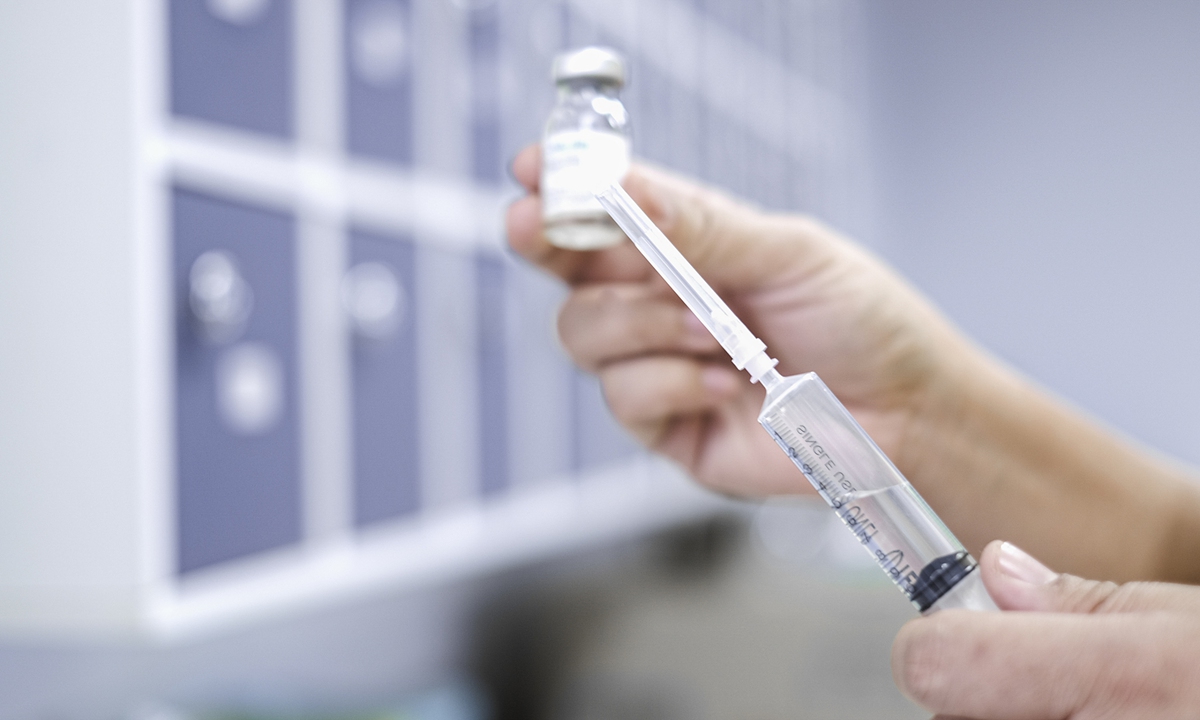Chinese vaccine makers vaccinate overseas employees and military personnel
Source: Global Times Published: 2020/9/3 2:01:35

Photo:VCG
Chinese leading vaccine producer China National Pharmaceutical Group (Sinopharm) signed an agreement with Chinese technology giant Huawei on Tuesday to facilitate strategic cooperation on resource and service support for COVID-19 inactivated vaccine, widely seen as a potential offer to extend vaccinations to more Chinese employees who frequently go abroad for business.
As the world's leading scientific and technological innovation enterprise, Huawei's business covers more than 170 countries and regions, Luo Wencheng, president of Global Administrative Services of Huawei, said on Tuesday.
More than 200,000 Huawei employees have been struggling amid the pandemic around the world, including countries and regions where the outbreak is very severe, Luo said. It is more urgent to ensure the life and health of employees through emergency vaccination in order to facilitate the resumption of work and production.
According to the agreement, Sinopharm will provide resources and service support to Huawei in the field of COVID-19 vaccines and other biotechnology products, to comprehensively safeguard the life, safety and health of Huawei's 200,000 employees, said the Statement of Sinopharm.
The inactivated vaccine produced by the company has been given to employees of state-owned enterprises (SOEs) preparing to go abroad. The vaccine has so far proven safe in human trials. It has also offered the vaccine free to front-line medical workers in some state-owned hospitals for urgent use, although it is still in late-stage trials.
Yu Xuefeng, head of another leading vaccine producer CanSino Biologics Inc, recently revealed that its recombinant novel coronavirus vaccine (Ad5-nCoV) has been given to Chinese troops on UN Peacekeeping missions, especially those in regions with high infections, after the company received approval in June.
Urgent use for Chinese in peacekeeping missions is a way to protect those staying in the region where COVID-19 is still rampant. "But we need more data from phase three clinical trials before we can commercialize the vaccine," said Yu.
Posted in: SOCIETY